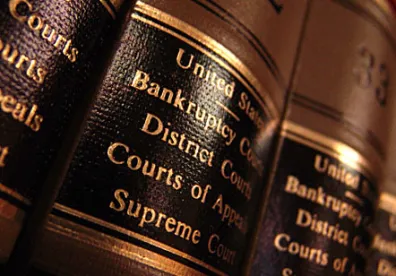A unanimous panel held that Asarco’s settlement in bankruptcy for its “share of response costs” did not preclude it from later bringing a CERCLA contribution claim.
On January 3, the US Court of Appeals for the Tenth Circuit held in Asarco LLC v. Noranda Mining Inc.[1] that Asarco’s settlement of its CERCLA liability in a bankruptcy proceeding did not estop Asarco from later bringing a Comprehensive Environmental Response, Compensation, and Liability Act (CERCLA) contribution claim against another potentially responsible party (PRP).
The case turned on Asarco’s representation to the bankruptcy court that its settlement amount equaled Asarco’s “share of the response costs” at a contaminated site. The district court found that statement inconsistent with Asarco’s subsequent contribution claim, because CERCLA allows for contribution only to the extent a party has paid more than its fair share.
The Tenth Circuit reversed the district court’s dismissal of Asarco’s CERCLA claim, holding that the two positions could be reconciled. The court based its holding in part on CERCLA’s purposes, finding that CERCLA allows for some degree of “imprecision” in settlements in order to facilitate early resolution. The Tenth Circuit further observed that the district court’s holding could have severely limited settlement prospects by hindering PRPs’ ability to recover at a later stage through contribution.
Background
Asarco, a large mining, smelting, and refining company, filed for Chapter 11 bankruptcy in 2005. As part of that bankruptcy, Asarco agreed to pay approximately $1.8 billion to resolve environmental claims at 52 separate sites. One such site was the Lower Silver Creek/Richardson Flat Site near Park City, Utah, for which Asarco agreed to pay $8.7 million to remedy environmental contamination associated with mine tailings. In 2013, the reorganized Asarco brought a contribution claim under Section 113 of CERCLA[2] against Noranda, another PRP at the site. That claim alleged that Asarco had paid more than its fair share of the cleanup costs and that Noranda should compensate Asarco to cover its share.
Noranda moved for summary judgment, in part on the grounds that Asarco’s contribution claim was estopped by Asarco’s representations during the bankruptcy proceeding. Specifically, Noranda argued that the statement in a declaration of an Asarco director that “the settlement amount reflects only Asarco’s share of the response costs” directly contradicted a necessary element for recovering under Section 113 of CERCLA—that Asarco had paid more than its fair share. The district court agreed with Noranda, and Asarco appealed to the Tenth Circuit.
Tenth Circuit’s Decision
Reversing the district court, the Tenth Circuit held that Asarco’s statements to the bankruptcy court could be reconciled with its contribution claim. The court began by noting that the statement highlighted by Noranda was only one sentence from a declaration and was contradicted by other statements made during the bankruptcy case. For example, the court noted that the same director had indicated in a deposition that the $8.7 million settlement figure was the amount Asarco would pay under “joint and several liability.”
The court then analyzed the purpose of contribution claims under CERCLA. It found that Section 113 of CERCLA was designed partly to “encourage PRPs to settle” by preserving the ability of PRPs to recover at a later time from non-settling parties. The court further found that CERCLA contemplates settlements at a stage at which the exact shares of particular parties’ liability for contamination are uncertain. The court further observed that limiting a party’s contribution rights after it settled with the government would result in a system under which no party would settle unless “a mini-trial was held to determine its exact share of environmental liability.” Thus, the court concluded that a single statement about a party’s share of liability made in the context of a settlement did not estop a later contribution claim.
In so holding, the Tenth Circuit rejected the argument that Asarco’s positions were inherently inconsistent, because case law under CERCLA requires a settlement to be proportional to a party’s comparative fault. The court interpreted that line of cases not to require a settlement amount to be a precise calculation of each party’s liability but merely to have some rational relationship to a party’s share. The Tenth Circuit therefore held that the bankruptcy court’s approval of Asarco’s settlement was not inconsistent with Asarco’s contribution claim, as settling for more than a party’s comparative share would not necessarily render a settlement invalid under CERCLA.
Implications
The Tenth Circuit’s opinion overrules a district court decision that could have chilled settlements in CERCLA cases. As the Tenth Circuit noted, the incentive to settle CERCLA cases could be reduced if settling parties feared that such settlements, or statements made in support of such settlements, would preclude them from recovering their costs from other PRPs in the future. Instead, the Tenth Circuit’s decision encourages early settlement by reaffirming that settling parties can potentially recover from non-settling PRPs through contribution.
The Tenth Circuit’s decision also reaffirms that settlements under CERCLA do not need to calculate a PRP’s share of liability with pinpoint accuracy in order to be approved by a court. The court makes it clear that parties may settle at a stage at which there is some uncertainty about a PRP’s contribution to the contamination, and that a settlement may take into account litigation risk and other factors not directly dependent on an assessment of a party’s comparative fault.
[1] __ F.3d __, 2017 WL 24609 (10th Cir. 2017)
[2] 42 U.S.C. §9613




 />i
/>i

